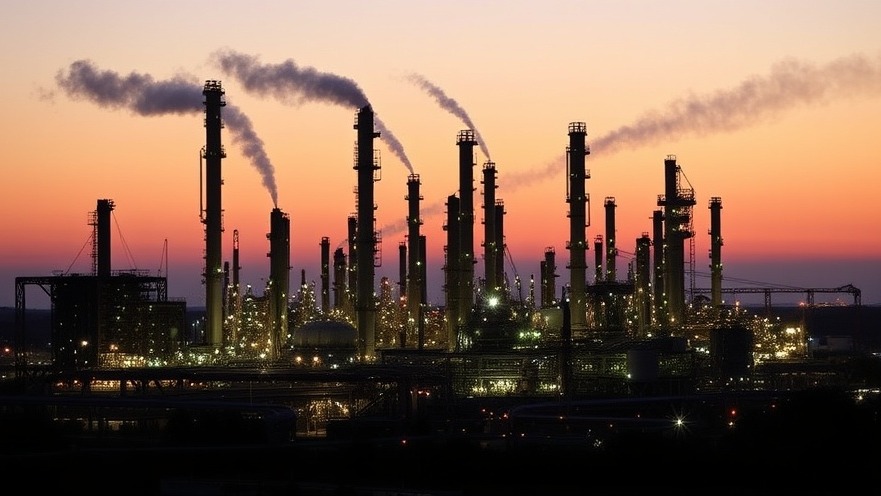
Rethinking Carbon: A New Era for Texas Startups
As fossil fuel consumption continues to rise, Texas startups are redefining our relationship with carbon. Rather than viewing it strictly as a waste product, companies in the Lone Star State are innovating methods to transform carbon emissions into usable products. This shift not only presents economic opportunities but also promises an environmentally friendlier future.
The Game Changers of Carbon Conversion
In San Antonio, Graphitic Energy is making waves with a pilot project that utilizes a four-story apparatus to break down Texas shale gas into hydrogen and solid carbon—a stark alternative to letting carbon dioxide (CO2) emissions pollute the atmosphere. CEO Zach Jones emphasized that solid carbon is easier to handle than gaseous CO2, framing it as a potential commodity rather than a waste product.
The Power of Pyrolysis and Innovation
Graphitic Energy employs pyrolysis, a method historically deemed too energy-intensive for practicality. However, the company claims to have perfected a chemical catalyst that significantly reduces energy requirements by nearly 90%. This innovation brings the economic viability of carbon utilization closer to reality, with aspirations to sell hydrogen and graphite, both of which are in demand.
Texas Startups Leading the Charge
Graphitic Energy is not alone in its quest. Other startups like Carbon Free and Cemvita are also charting new territories. Carbon Free is producing calcium carbonate from CO2 emissions, creating a reusable material known to most as baking soda. Meanwhile, Cemvita is turning CO2 into valuable chemicals through engineered microbes, while Dexmat is working on carbon nano-materials as alternatives to metals.
Future Predictions: How These Technologies Could Evolve
While Texas startups are taking significant strides, experts caution that current efforts alone will not substantially reduce global greenhouse emissions. Frederic Clerc, director of New York University's Carbon to Value Initiative, notes that the focus must also be on economics. Companies will be incentivized to adopt these technologies when selling carbon byproducts proves more lucrative than disposing of them. This shift may define the future of carbon utilization, requiring large-scale production and optimization.
The Energy Challenge: Balancing Demand and Supply
Despite the promising innovations in carbon technology, there's a looming challenge: a surge in demand for energy due to artificial intelligence projects has led to extended waiting times for power resources. This situation raises questions about how Texas can balance its evolving energy landscape with the need for sustainable carbon solutions. As these startups scale their operations, securing energy will be critical.
Conclusion: The Path Forward for Texas Innovations
Changing perspectives on carbon not only presents environmental benefits but also showcases Texas as a potential leader in carbon transformation technologies. Startups are at the forefront, fostering innovation in an area that affects everyone. Keeping an eye on Texas news will be essential to monitor these evolving landscapes that combine technology, economy, and environmental strategy.
To remain updated on these innovations and their impact on both the Texas economy and environment, subscribe to local news outlets specializing in Texas technology startups and carbon initiatives. The future is bright for those looking to engage with pioneering ideas and practices that could reshape our world.
 Add Element
Add Element  Add Row
Add Row 



Write A Comment